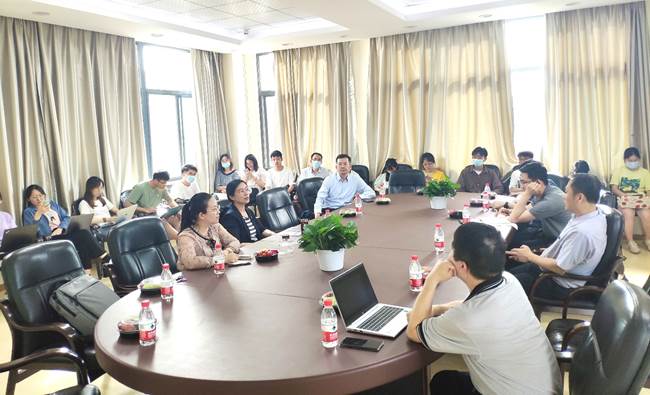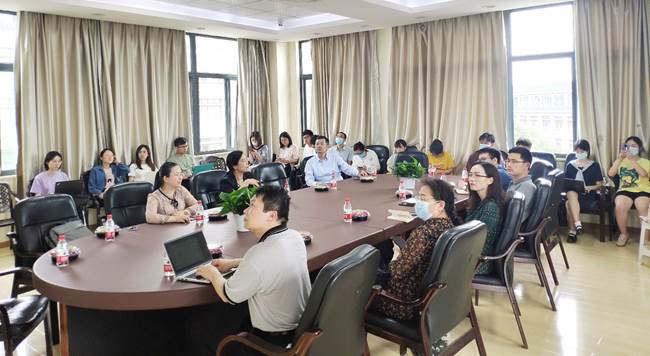On the afternoon of May 29, ResearcherZhiyun Zhao, CPC Secretary andDirector ofInstitute of Scientific and Technical Information of China,and Director of the New Generation Artificial Intelligence Development Research Center of theMinistry of Science and Technology of the People's Republic of China,had a discussion with teachers and students of our school on Intelligence and Think Tank, which was about the development of scientific and technological information work. Professor Wei Lu, Dean of the SIM, Professor Xiaoguang Wang, Associate Dean of the SIM, ProfessorLu An, Deputy Director of the Department of Information Management Science, Associate Professor Yiming Zhao, Deputy Director of the Department of Information Management Science, Professor Rongying Zhao, ProfessorLong Lu, Professor Lin Zhang, Associate Professor Jin Mao and graduate students from all grades attended the discussion. Lu An presided over the meeting.

At the beginning of the seminar,Zhiyun Zhaostressed the important strategic position of scientific and technological innovation during the 14th Five Year Plan period, and shared her views on the future road of scientific and technological information work serving scientific and technological innovation. From poverty alleviation through science and technology to global intelligent problem solving, science and technology plays a key role in solving economic, social and international problems. In the era of AI and big data, scientific and technological information work will face changes in demand, model, mode and perspective in the future. It is strategically necessary to do a good job in open source scientific and technological information work. Zhiyun Zhao said that the purpose of scientific and technological intelligence -- "ears and eyes, top soldiers and staff officers" has never changed. Intelligence work is to do these well, but it is not easy to do them well. This is the lifelong cultivation of intelligence personnel.
Zhiyun Zhao gave her own views on whom and how to serve the scientific and technological information work. Scientific and technological information work is a part of the central government's national strategic scientific and technological strength. It excavates the key core technologies, tackles the problems in the construction of a new national system, and provides suggestions for the central government's strategic decision-making. For ministries and local governments, scientific and technological intelligence work provides intelligence services for neck bottle technology, such as chip, electronic as well as frontier detection and disruptive technology early warning, and also plays an important role in the construction of emergency intelligence system. Zhiyun Zhao stressed that enterprises need science and technology information services more than government departments, and the core technology is the lifeblood of enterprises. Science and technology information services help promote technological innovation of enterprises, and information and consulting services related to the opening of policies, industries and markets also need the support of science and technology information work.
Zhiyun Zhao pointed out that in order to do a good job in the future, it is necessary to build a scientific and technological think tank with the characteristics of intelligence ecology. She proposed the intelligence ecological model of science and technology think tanks, which integrates information and think tanks to provide solutions for strategic decision-making at all levels.
Finally, the teachers and students at the meeting had a discussion on talent cultivation and think tank construction of information work. Zhiyun Zhao said that the development of scientific and technological innovation needs a large number of intelligence talents, and we encourage graduate students to master the knowledge and skills and are devoted to the intelligence work of the government, research institutions and enterprises.

The seminar discussed the content, role and future development direction of scientific and technological information work, which was helpful to the talent training and construction of information science postgraduates, and could help students enhance their professional identity and social responsibility.